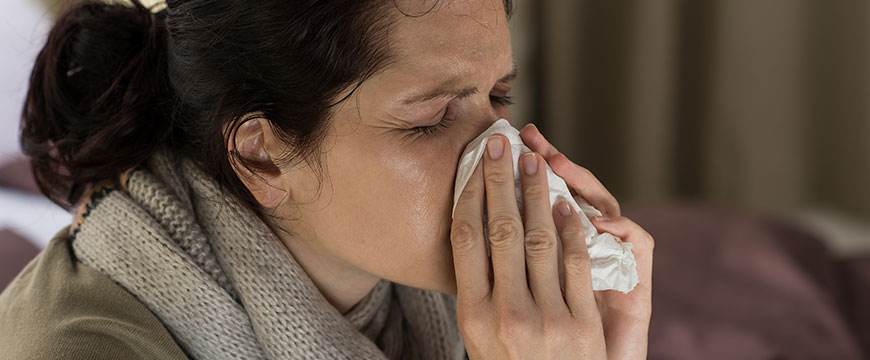
The rising COVID-19 cases have been consistent for the past months. But somehow, the good news is that a huge chunk of those figures has already recovered. Still, we should be extra careful since the virus is still out there. Those with allergies and asthma may also still be at high risk of contracting the virus if they are not careful enough.
Speaking of allergies and asthma, it is best to visit an allergy clinic if you are experiencing symptoms. If you notice rashes, constant coughing and sneezing, and breathing difficulties, consult an allergist doctor for proper treatments.
Keeping safe from COVID-19
Experts remind people over and over again about using face masks, observing physical distancing, and practicing proper hygiene. As of now, there is no vaccine yet available to help manage this global pandemic. In the meantime, the best protection we can give ourselves is hand washing.
On average, people touch (inadvertently or on purpose) about 23 times per hour. Our hands are also constantly exposed to germs and other harmful bacteria. The next thing you know, you get sick that could have been avoided by washing hands.
Studies show that handwashing is one of the best ways to lessen the spread of the dreaded virus. Aside from protecting against COVID-19, hand washing will also protect you from other common illnesses like colds and flu as well as salmonella.
There are two ways to clean our hands: either by lathering with soap or using alcohol or hand sanitizer. These may seem to be an easy task. However, there is a right way of cleaning your hands using these hygiene products.
What to consider in choosing a hand sanitizer
In case that running water and soap are not available, you can use hand sanitizer. When you buy a hand sanitizer, you should not only rely on its smell only. You should also check the chemical composition. Choose a hand sanitizer that is 60 percent ethyl alcohol or 70 percent isopropyl alcohol.
Stay away from hand sanitizers that have methanol or 1-propanol, which are both toxic when coming into contact with skin. There are even some new brands that contain these ingredients but are labeled as ethanol. Trust only brands that have been in the market for years.
Using alcohol nowadays is as important as taking proper asthma treatments. You need to be aware of your surroundings and use it as needed to prevent the harmful effects of not being careful of your health later on.
Those with allergies and asthma are more prone to contracting this virus, so it is important to be extra careful. Allergy testing can also help whether you have underlying allergic reactions that will make you more vulnerable to COVID-19.
How proper hygiene can prevent allergic reactions
Along with the ongoing pandemic, we all need to be wary of our hygiene and keep our surroundings clean. This is also your allergist specialist will most likely recommend preventing allergic reactions. It includes cleaning dust and dirt off your home, choosing the right personal hygiene products with gentle or organic ingredients.
Here are other ways to prevent allergic reactions as recommended by an allergy specialist doctor. As mentioned, those with allergies and asthma can be more prone to contracting the dreaded COVID-19 virus.
- Using vinyl, wood, or tile flooring instead of carpets as the latter can harbor dust mites that can cause allergic reactions
- Choosing window blinds that are easy to clean
- Regular dusting of cushions, upholstered furniture, and stuffed toys by vacuuming or high-temp washing
- Using a vacuum cleaner with HEPA filter
- Not keeping pets inside the house (as much as possible)
- Bathing pets at least once per week
- Replacing bedsheets and linen at least once a week
- Checking the ingredients on food packaging for possible allergens (nuts, spices, dairy, etc.)
- Staying inside the house during high pollen count (usually summer)
- Using insect repellent to the exposed skin
Staying safe during the pandemic
These are only some of the best ways to protect you from the virus. We won’t know until when this pandemic will end. But the best way to prevent falling victim to this disease is by proper hygiene and managing symptoms as soon as possible.
If you have asthma or allergic to something, you need to be twice as careful nowadays. In case you experience any allergic symptoms, make sure to go to an allergy clinic in Manassas VA immediately.






